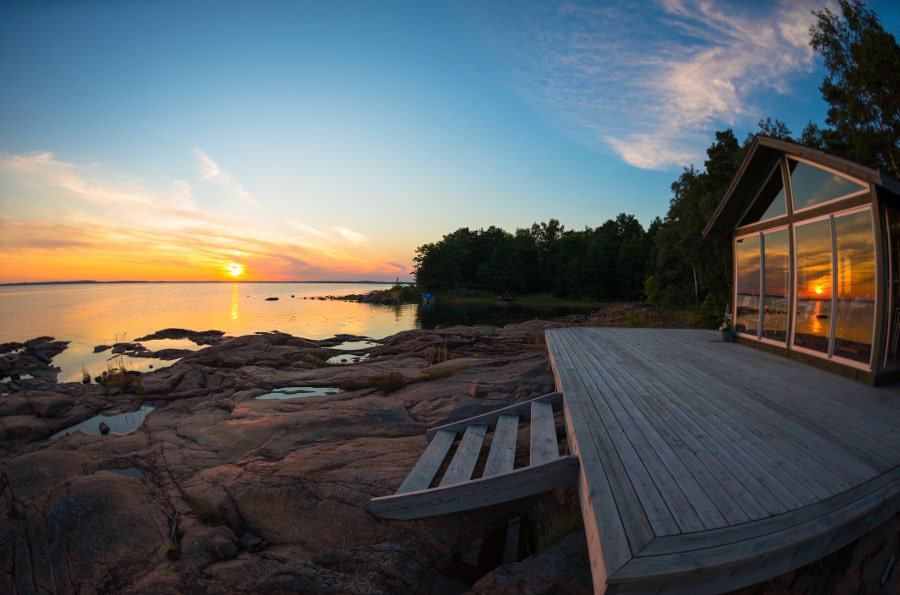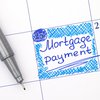Buying a Vacation Home? This is What You Need to Know!

If you are considering buying a second home , you have already come a long way. When you are feeling financially secure enough to take the leap, you will still need to prepare for a few things. First, you will most likely need another mortgage.
In terms of mortgages, buying a vacation home is not like buying your first. Lenders will look at your application in a completely different way. If you have managed to repay your mortgage steadily and consistently, you may have a much better experience the second time around.
Regardless of its exact purpose, owning a vacation home is a big responsibility. Some Canadians invest in vacation homes in popular or up-and-coming towns like Muskoka or Kawartha Lakes to cash in on summer tourism to make rental income. Others simply want a home away from home to go to during their free time.
There are a few major differences between personal use vacation homes and rental vacation homes. Let’s go over the factors you need to keep in mind.
Double The Homes: Double The Cost?
The financial implications of owning a vacation home are the first ones you need to consider. Another home means:
- Another property tax obligation
- A second loan to repay
- Maintenance and upkeep of a second home
- Capital gains or losses to account for upon resale
Secondary residences are also considered taxable assets in Canada. So, you will also need to consider long-term estate planning when you make your purchase. Mortgage repayments and property taxes are just some of the more imminent costs.
When your vacation home eventually changes hands, you will have to deal with some form of paperwork. Even if you do not sell the home during your lifetime and only pass it on to someone at the end of your life, your legal representative will need to file a deceased tax return to the CRA, at which point taxes owed will need to be paid by the estate or whoever inherits the property.
Financial Benefits
On the flip side, while you have extra responsibilities, you will also have a valuable asset. The point is that reaping those benefits will require you to account for the costs and responsibilities.
Vacation homes may often become simple weekend retreats, but they will still require upkeep. They are still structures with utilities and maintenance needs. Depending on the specifics, a vacation home can often be more demanding than a small house or apartment in the city.
A Clear Plan
Because of the time and money it requires, owning a vacation home cannot be an overnight decision. So, list out the primary purpose of buying the home and a plan for how you will pay for it. Your plan will help you ensure the property is handled in a way that makes it possible for you to extract the intended value from it .
Vacation homes typically serve one or both of the following purposes:
- A home for leisure use for the foreseeable future
- An investment asset which will net rental income, a capital gain, or both
Vacation homes can offer different kinds of utility over their lifetimes. However, it’s your responsibility to:
- Pay for your purchase in full or with regular mortgage repayments
- Ensure you are not financially overburdened
- Ensure your new property reaches any financial goals you have for it
Basic budgeting will take you most of the way to handling these tasks. However, being decisive and following through are equally important. Real estate is not a liquid asset, it normally takes time to sell. That means you will need a plan that lasts.
What Tax Benefits Do Vacation Homes Get?
Tax breaks make everything about buying a home easier. But will your vacation home net you the same tax breaks as your principal residence?
If your vacation home is only used by you and your friends/family and does not produce any rental income , it is considered a personal-use property . Rental properties have different implications when filing with the CRA.
Let’s look at how the difference affects tax breaks applicable to vacation homes.
Capital Loss
If your vacation home is a personal-use property, you will not be eligible for capital loss deductions.
If your vacation home is to be rented out not just incidentally or occasionally, you will be determined to have changed the use of the property (from the CRA’s point of view). When that happens, you are deemed to have “disposed” of your cottage. Your cottage will be seen as disposed of at Fair Market Value (FMV). Taxes are determined based on the difference between the FMV of your vacation home from the time its use was changed and its adjusted cost base (ACB).
Rental Expenses
If your property is used as a rental, you can claim applicable expenses against its income. Normal operating expenses for rental properties in Canada include a portion of costs directly associated with the rental:
- Advertising
- Cleaning
- Agent fees & commissions
- Property management fees
- Depreciation (claimed as a Capital Cost Allowance (CCA))
If you are claiming a CCA for depreciation, you can only claim enough to have a net rental income of zero. You can not create a rental loss using a CCA, nor can you aggravate an existing loss further by claiming a CCA.
Then, there are other deductions you can claim, such as rental losses .
Insurance
If your vacation home is used as a rental property, you can deduct the premiums you pay. If the policy offers coverage for more than a year, you can only deduct premiums applicable to the current tax year.
Property Tax Deductions
If you use your vacation home as a rental , you can deduct property taxes for the period it was available to rent. You can deduct property taxes for the time it is being marketed. However, you may not claim property tax deductions for the time the home spends under renovations.
It’s important to consider the local property taxes for your vacation homes. Ontario property taxes vary by municipality , so you need to determine what your property taxes would be.
Principal Residence Exemption
The main tax break a vacation home is likely to miss is the principal residence exemption. You can still claim it on your vacation home but doing so incorrectly will put your ability to claim it at all at risk.
You (or you and your spouse) are only able to designate one of your homes as your principal residence for one tax year. Since 1982, it has not been possible for each spouse to claim a different property as their principal residence.
Renovations
While rental properties provide access to several tax breaks, what can you do with a normal renovation to a personal use property?
Regardless of your vacation home’s use, it’s important to track all expenses related to the property . These expenses will be important in determining the taxes you must pay once you sell or dispose of the home.
Disposing of your vacation home can mean one of two things: selling/changing ownership while you’re alive, or after your death. Regardless of the circumstances of the property’s disposal, you will be determined to have made a gain if the proceeds of a sale exceed the total ACB, minus selling costs.
Qualifying renovation expenses can be deducted for either personal use or rental properties. One of the significant deductions that Canadians can take advantage of is the Home Accessibility Tax Credit (HATC). This deduction is available to Canadians aged 65 or older or for disabled people of any age . If the expense was used to make the vacation home more accessible to the elderly or disabled, you may be able to claim up to $10,000 in expenses under the HATC.
What About The Home Buyer’s Plan?
While it can be a confusing topic to cover, you can use the Home Buyer’s Plan (HBO) more than once. But you must be considered a first-time homebuyer to use it.
You would be considered a first-time home buyer if:
- If you have not occupied a home that you or your spouse (or common-law partner) own in the last 4 years.
- If you are buying a vacation home for a family member with a disability.
Note that the 4-year period is clearly defined. The four-year mark is passed after the fourth year you did not occupy a house owned by you, your spouse, or your common-law partner.
One of the major hurdles of buying a vacation home is that you can’t access many of the same resources that you could for your first home purchase. To start, you won’t qualify for the Home Buyer’s Plan unless you meet the above criteria.
In addition, you cannot use deductions designated for a principal residence. The Income Tax Act only allows Canadians to hold one principal residence. When your principal residence is sold, you do not need to worry about capital gains taxes. This no longer applies when you purchase an additional property.
So, benefits not applicable to vacation homes strictly for personal use include the absence of capital gains tax as well as the Principal Residence Exemption.
Conclusions
Owning a vacation home in Canada can be very rewarding. You can take advantage of the immense space Canadians have access to and enjoy a highly personalized vacation experience. Or, you can make rental income from other vacation-goers, if you don’t just do both.
Regardless of your goals for your vacation home, you need to understand the implications of owning one when it comes to your personal finances. This is especially true of the way the CRA views homes that aren’t your principal residence.
With careful financial planning and a basic understanding of Canadian property law, you can make sure you get the most out of your vacation home.
If you are looking for a vacation home and need a mortgage for that, give Clover Mortgage a call at 416-674-6222 . Our team of professional mortgage brokers will be able to assist you!





